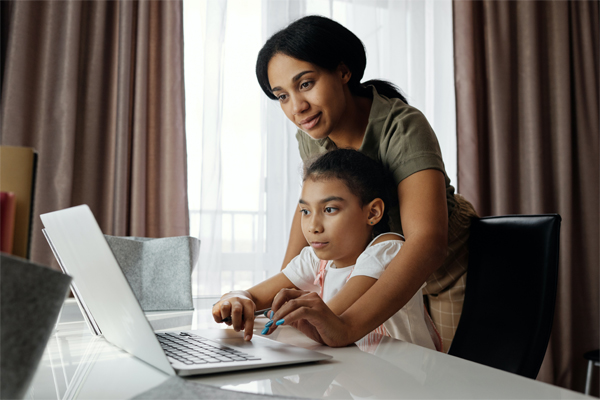A global study on learners from learning company Pearson, reveals that more than two-thirds of learners around the world believe that the pandemic will ‘deepen’ education inequality. In fact, 70% of people globally believe that COVID-19 pandemic will increase education inequality, particularly among young students.
According to Pearson’s study, the majority of learners (88%) want education systems to do more to address inequality issues. Even though learners still believe that education delivers opportunity, they worry that opportunity isn’t equal, according to its second annual Global Learner Survey.
Learners around the world also believe that the COVID-19 pandemic will leave “a lasting legacy” on education. Pearson’s findings show that learners believe there is little likelihood of ever returning to the pre-COVID world of fully in-person work and learning, with more than 75% saying the pandemic has “fundamentally changed education as we know it”. While learners come to terms with this new reality, they are also pushing for schools and government to address inequity and rushing to gather the digital skills that will help them adapt to the new economy.

Image credit: Julia M Cameron, Pexels
COVID-19 IMPACT ON EDUCATION
Learners globally believe that COVID-19 will revolutionise the way they learn and work, points out Pearson’s study. Approximately 88% of learners globally say online learning will be a permanent part of primary, secondary and higher education moving forward. Around 77% of people say that the pandemic has permanently changed the way that people work, with 90% of people globally now saying that people will need to be more comfortable working remotely and in highly digital environments. Globally, 82% of people say that new kinds of jobs will arise from the pandemic and almost three-quarters of people are rethinking their own career path because of COVID-19.
If online is here to stay, learners worldwide “want it to be better”, noted the study. Around 88% of learners globally want educational institutions to maximise learning through technology, but 67% say that education institutions are less effective at using technology than other industries such as healthcare or banking. Given the choice of how to invest in public education, providing technology for underserved learners and ensuring schools are better prepared for online learning were the top priorities for learners in every country surveyed.

Image credit: Ekaterina Bolovtsova, Pexels
BUILDING BETTER DIGITAL SKILLS
According to Pearson, the rush is on to build better digital skills that will sustain people through the pandemic and beyond. With more than half of respondents in need of education because their job status has changed, 89% say people will need to develop better digital skills-like virtual collaboration and data analysis-to move forward in this economy. Approximately 77% learners say that working remotely has taught them they need different skills than working in an office, In addition, 71% of people around the world intend to keep working remotely in the future. These findings mirror the results of other global studies, as reported.
Nevetheless, despite the massive COVID-19 disruption, trust and confidence in education systems is on the rise, reveals Pearson’s study. Having witnessed the heroic response of educators to the pandemic, two-thirds of people across the world said their education system did a good job adjusting to the pandemic. At the same time, an increasing number of people globally say that the education systems in their countries are providing a quality education for all – 54% globally in 2020 compared to 49% in 2019. This year, even more people rate their country’s primary, secondary and higher education systems as great or good compared to other countries. The notable exception to this is Brazil, the only country in the survey where faith in the education system declined in 2020.

Image credit: August de Richelieu, Pexels
MIXED DYNAMIC EXPERIENCE
“As learners adjust to a world forever altered by pandemic, they understand that the future of work and learning is now a dynamic mix of online and in person experiences,” commented John Fallon, Chief Executive of Pearson. “While they learn and work online, people are learning to move forward in new ways that can help them seize opportunity, no matter what the future holds.”
Pearson conducted the study with Harris Insights & Analytics to give learners in seven countries the opportunity to voice their opinions on primary, secondary and higher education, and careers and the future of work during the pandemic. More than 7,000 people, ranging in age from 16 to 70, participated in the poll. Now in its second year, the survey is the most comprehensive and wide-ranging global public opinion survey of learners. Click here to view the full findings of the report.







































